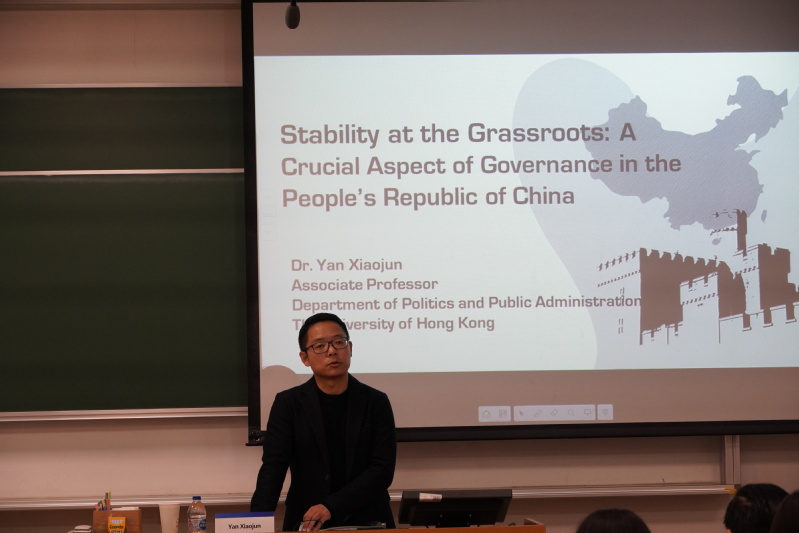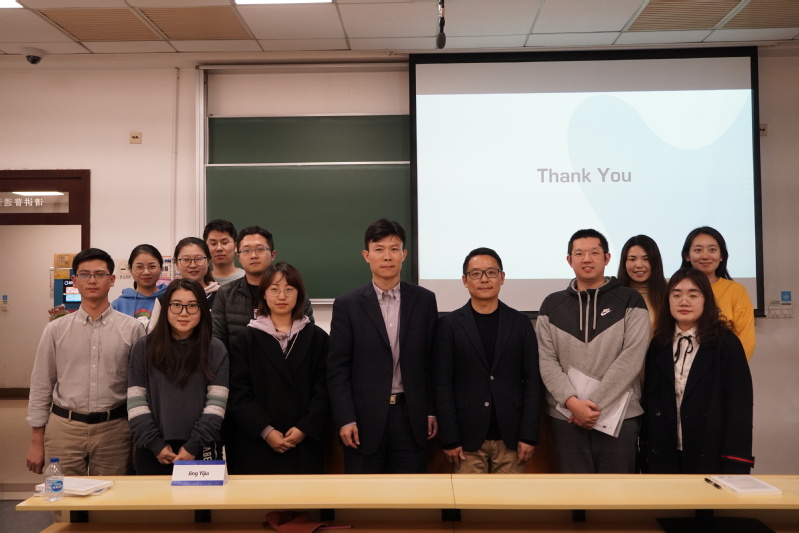Events



On November 21, the 24th session of the Fudan-LSE lecture series was held in Room 404 of the West Sub-building of Guanghua Towers at Fudan University. Xiaojun Yan, Associate Professor in Politics and Public Administration at the University of Hong Kong, delivered a lecture entitled “Stability at the Grassroots: A Crucial Aspect of Governance in the People’s Republic of China”. The lecture was sponsored by the Fudan University and moderated by Professor Yijia Jing, the Dean of the Institute for Global Public Policy of Fudan University.
Professor Yan received his A.M. and Ph.D. degrees at Harvard University, after undergraduate and graduate study in Peking University. He has published several books, including Why Is China Stable: Stories from the Grassroots.
The theme of this lecture is grassroots stability. Professor Yan pointed out that China has experienced three major transformations in the new century – marketization, modernization, which largely features the development of the knowledge economy and the rise of the urban middle class, and the growth of the national economy. But these changes do not necessarily bring about social harmony. Changes may instead not only provoke the existing conflicts but also trigger new ones, which could undermine political stability. Therefore, stability preservation, especially the control of grassroots society, is of paramount importance. Since 2012, Professor Yan has conducted fieldwork in “East County” to study how stability preservation is pursued at the county level of China.

His investigation reveals that the county-level government has built stability preservation on daily management and control operations, which seek to identify, prevent, intervene, and deal with “unstable factors” before they escalate. The county-level Party Committee in “East County” directly takes charge of these stability preservation tasks and the Party Committee secretary is “the first responsible person”, whose successful completion of the job and future promotion hinges on preserving stability. Moreover, there is another member on the Party Committee who directly leads the daily work of stability preservation. To coordinate work across different Party-state organizations, the government also set up a special office to deploy and mobilize administrative resources to ensure political security, public safety, and safe production.
In the lecture, Professor Yan also laid out four major causes of potential instability, namely family feud, economic disputes, land disputes, and emergencies. To deal with these unstable factors, the county government has built a comprehensive safety net with three important components. First, it promotes institutionalized cross-border cooperation to alleviate inter-jurisdictional contradictions, using multiple mechanisms such as joint meetings and memorandum of understanding signed by neighbouring counties. Second, it has penetrated local society by creating social security comprehensive control stations to report and investigate small and large social conflicts, along with 500 full-time or part-time information staff and the “letters and visits” system. Third, it has set up a few organizations, including people’s mediation committees, to resolve social emergencies by persuasion and negotiation.
Based on those observations, Professor Yan concluded that the grassroots Party organizations and the government in “East County” have largely succeed in preserving stability of local society. At the end of the lecture, the audience exchanged views with Professor Yan on questions about how to measure stability and how to deal with “unstable factors”. At the end of the lecture, Professor Yan interacted with students and faculty members, engaging in a series of discussions on specific issues related to this topic.
